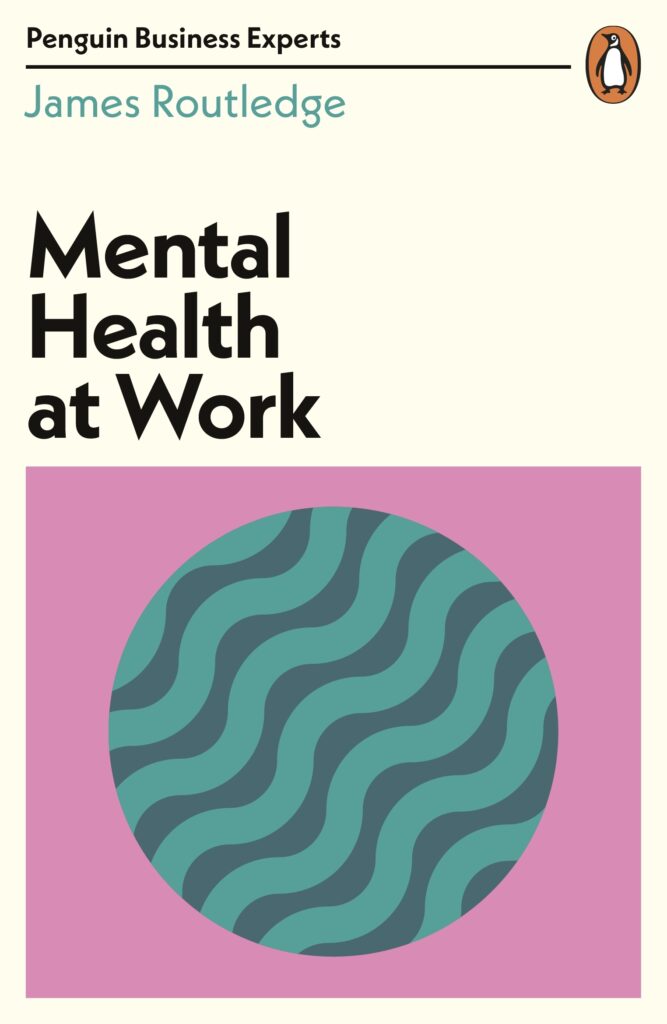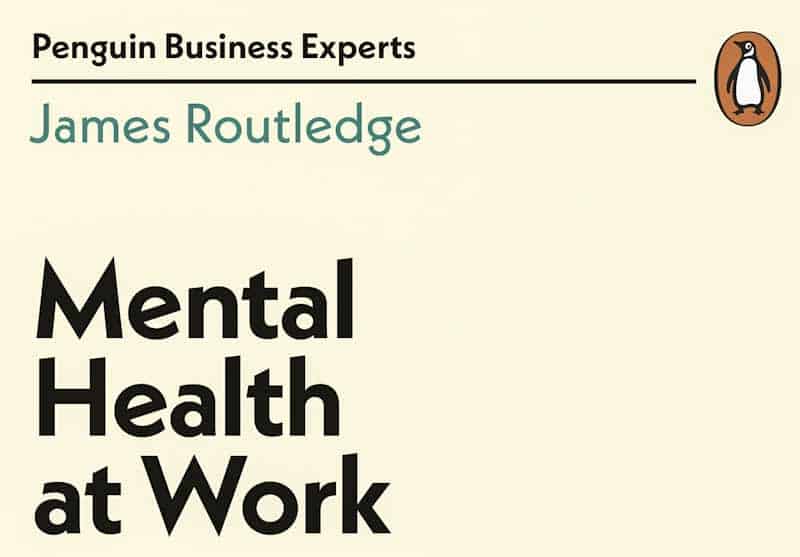Some of the recent guidance on mental health at work from occupational health and safety (OHS) regulators is not scintillating or even engaging. Their purpose is to provide information with the hope it is presented in a workplace by someone super-communicative and influential. (C’mon, really? We’re talking about OHS here.)
Luckily there is a recent easy-to-read book of fewer than 150 pages that reads like a conversation over a single afternoon with the reader about Mental Health At Work.
James Routledge has written a book without footnotes and references (and thankfully no cartoons), which does not patronise the reader or make the reader feel that thinking about and, more importantly, acting on mental health at work is pointless. Perhaps the most significant attraction of this book is that it keeps its focus on what the title says – Mental Health at Work. (and it costs less than $30!!)
Also, this book is written for an English readership. The advantage for a large part of the world is that this source means that most of the book is compatible with our own OHS laws. Our corporations and Human Resource fads may be imported from the United States, but the legislative environment is English. Nothing in this book seems incompatible with the Australian OHS experience.
Routledge is never directly critical of established approaches to mental health at work. He acknowledges those approaches but suggests what he believes and knows works.
A great example of the author’s voice and intentions for the book is mentioned at the outset:
“I don’t want this book to be another thing you should do. There’s no right way to read a book, and you don’t have to read it in any particular order. Depending on your existing relation-ship with mental health, and your role at work too, certain chapters or sections in this book may not feel as relevant as others, so feel free to skip those or flick through. For example, if you are in a leadership position at your place of work, you may feel like you want to get to the actionable sections. On the other hand, if you are a mental health practitioner, the sections that focus on mental health specifically may feel familiar to you. Use this book in whatever way feels natural to you.”
page 11
Routledge also supports the perspective that mental health at work is not a flaw in the individual worker that must be fixed by the worker. He writes:
“A dominant view of mental health has been to see it as something that is broken and needs fixing. This plays to a very individualistic view of mental health, which has led us to believe that how we feel is completely limited to how we are on the inside, without taking into consideration our environmental situation, our relationships and the global connected system within which we operate.”
page 22

And throughout, Routledge has a nice tone of support. This is a good example of the conversational voice:
“Talking about mental health at work may bring up more issues and raise awareness, yet it won’t make things worse than they are; it’ll just highlight what was already there in the first place. We need to be more confident in talking about suicide because it’s increasingly important to do so. By speaking plainly and openly about all aspects of mental health, including suicide, we remove the shame and the stigma around it. When it comes to suicide, doing this can save someone’s life.”
page 38
I could go on extracting quotes for this book for a lot longer. There is much more in this book than a read in just one afternoon offers. So I will end this article with one that epitomises the tone and advice that is not being met in the official guidance from OHS regulators:
“There is a lot you can do. You have a responsibility for your own mental health as an individual in your workplace. However, we are all part of a system at work – a corporation, organization, conglomerate, community, family, or whatever you like to call your workplace – we are part of something bigger than just us. Sometimes, we do all we can and show up as all that we are, yet we are still met with resistance. You prioritizing your mental health may mean you quitting your job, and giving your manager feedback as to the reasons why. You prioritizing your mental health may mean cutting back on working longer hours than you have to, until you get the recognition you feel you deserve. Your focus on mental health may mean treating your job as just your job, and finding purpose and fulfilment elsewhere in your life.”
This book will be a regular read of mine to keep me focussed on the prevention of psychosocial harm at work, the importance of talking and listening and to reassure myself that I am not howling in the wilderness about mental health at work.

